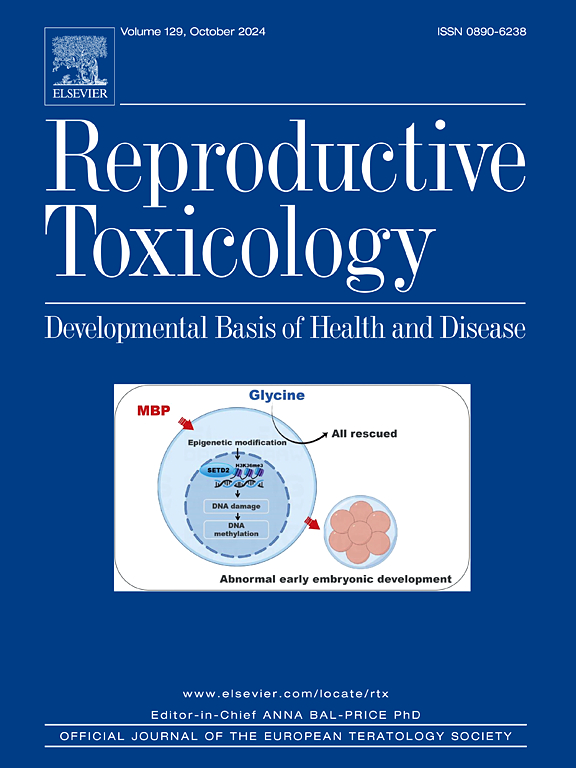Evaluation of reproductive toxicology studies according the OECD Guideline 443 – Claim and reality
IF 3.3
4区 医学
Q2 REPRODUCTIVE BIOLOGY
引用次数: 0
Abstract
The ECHA's work aims to establish uniform procedures for the authorization or restriction of the use of chemicals in the European Union. Studies conducted in accordance with OECD Guideline 443, in which, among others, the evaluation of pituitary and thyroid hormones and fertility under high-dose exposure are used as read-out parameters. Since 2022, ECHA has been compiling such extended one-generation reproductive toxicity (EOGRT) study data and publishing its assessments with regard to design, study conduct and toxicological results. Based on this, since then the authority has made demands on EOGRT study performers that are excessive, sometimes contra productive, may hamper data interpretation and lead neither to an improved validity of the studies nor to better animal welfare. Here, we explicitly address the physiological variability of pituitary hormone values and the interaction of reproductive toxicity with high dose exposure scenarios.
根据经合组织第 443 号指导文件评估生殖毒理学研究--主张与现实"。
欧洲化学品管理局(ECHA)的工作旨在为欧盟授权或限制使用化学品制定统一的程序。根据经合组织第 443 号指导文件开展的研究,除其他外,将脑垂体和甲状腺激素以及高剂量暴露下的生育能力评估作为读出参数。自 2022 年以来,欧洲化学品管理局一直在汇编此类延长一代生殖毒性(EOGRT)研究数据,并公布其对设计、研究行为和毒理学结果的评估。在此基础上,欧洲化学品管理局对 EOGRT 研究的执行者提出了过高的要求,这些要求有时会产生反效果,可能会妨碍数据解读,既不能提高研究的有效性,也不能改善动物福利。在此,我们明确探讨了垂体激素值的生理变异性以及生殖毒性与高剂量暴露情景的相互作用。
本文章由计算机程序翻译,如有差异,请以英文原文为准。
求助全文
约1分钟内获得全文
求助全文
来源期刊

Reproductive toxicology
生物-毒理学
CiteScore
6.50
自引率
3.00%
发文量
131
审稿时长
45 days
期刊介绍:
Drawing from a large number of disciplines, Reproductive Toxicology publishes timely, original research on the influence of chemical and physical agents on reproduction. Written by and for obstetricians, pediatricians, embryologists, teratologists, geneticists, toxicologists, andrologists, and others interested in detecting potential reproductive hazards, the journal is a forum for communication among researchers and practitioners. Articles focus on the application of in vitro, animal and clinical research to the practice of clinical medicine.
All aspects of reproduction are within the scope of Reproductive Toxicology, including the formation and maturation of male and female gametes, sexual function, the events surrounding the fusion of gametes and the development of the fertilized ovum, nourishment and transport of the conceptus within the genital tract, implantation, embryogenesis, intrauterine growth, placentation and placental function, parturition, lactation and neonatal survival. Adverse reproductive effects in males will be considered as significant as adverse effects occurring in females. To provide a balanced presentation of approaches, equal emphasis will be given to clinical and animal or in vitro work. Typical end points that will be studied by contributors include infertility, sexual dysfunction, spontaneous abortion, malformations, abnormal histogenesis, stillbirth, intrauterine growth retardation, prematurity, behavioral abnormalities, and perinatal mortality.
 求助内容:
求助内容: 应助结果提醒方式:
应助结果提醒方式:


